Part of caring for your smile involves caring for your gums. The soft tissue helps hold teeth in place and protects the sensitive roots of teeth. Gum disease can sneak up on people with even the most diligent brushing routine, so it’s important that you visit us for routine preventive care to let us take a good look at your teeth and gums.
Gum disease has a few different stages, but what it all boils down to is an infection around and inflammation of the gums. The earliest stage of gum disease is one many people are familiar with: gingivitis. This stage is marked by red, tender, and inflamed gums. The gums may even bleed during brushing. If it’s not treated or consulted with a dentist near me, gingivitis can turn into periodontitis and advanced periodontitis. In these more advanced stages, the gums begin to pull away from teeth, creating pockets where bacteria can accumulate. Eventually, periodontitis can lead to bone and tooth loss.
How is the health of your teeth and gums?
When we see that gum disease is present, either during a routine appointment or because you’ve come in with symptoms, we need to act fast to prevent it from spreading further. In fact, if we catch it early enough, we might even be able to reverse the damage. With early-stage gum disease, we can perform a deep cleaning to remove the plaque and bacteria causing gum disease. We may also provide a topical antibiotic to stop the infection. With more advanced periodontitis, we may recommend oral surgery using our soft tissue laser to remove the disease and restore some health to your gums. No matter what stage of Periodontal gum disease you have, though, it’s important that you come in as soon as possible so we can start the treatment process. Severe gum and bone disease that loosen up the teeth will require you to do to a periodontist in Houston.
Do Your Gums Bleed When You Floss?
If your gum disease hasn’t reached an advanced stage, you should act fast and treat it with some nonsurgical procedures.

If you don’t act in a timely manner, your periodontitis may proceed to an advanced stage and you won’t be able to avoid surgical treatments. The following treatment options are:
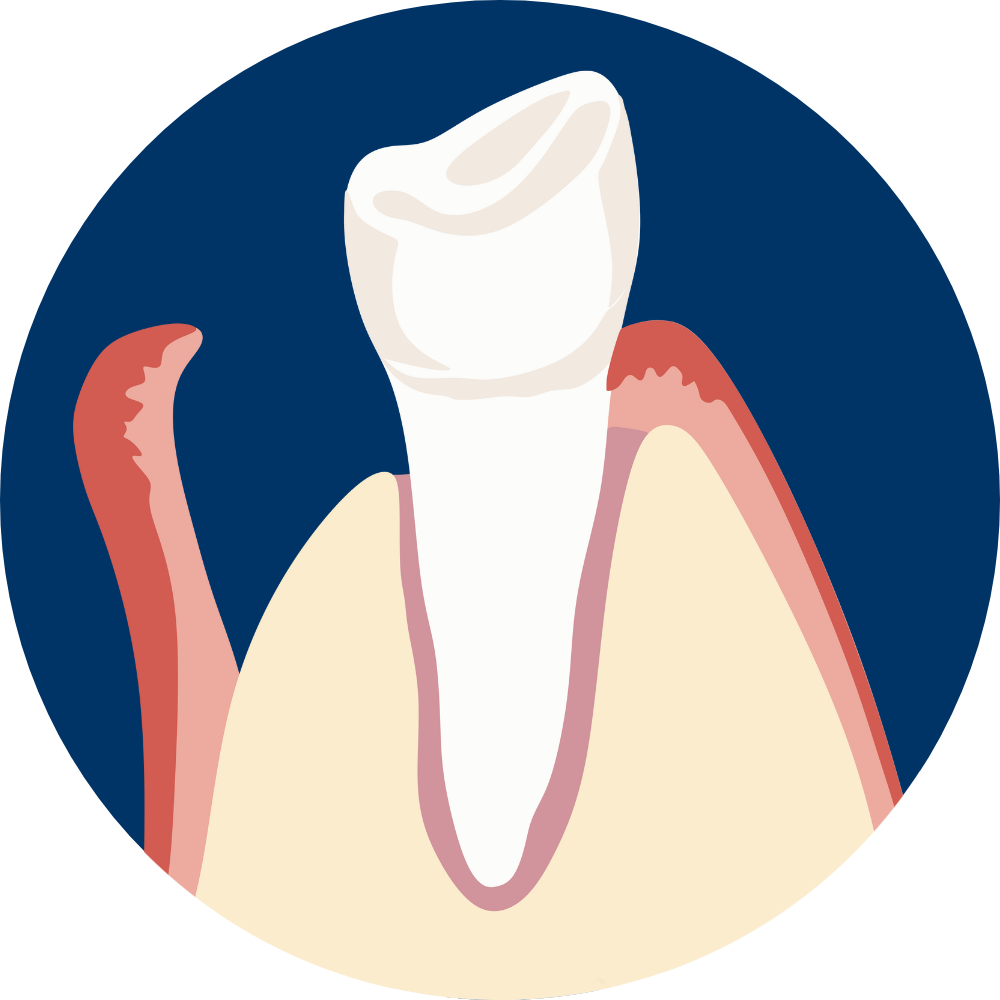
During this procedure, incisions are made on your gums to lift them up and perform scaling and root planing on the roots. This may also involve bone contouring depending on the amount of bone loss suffered.
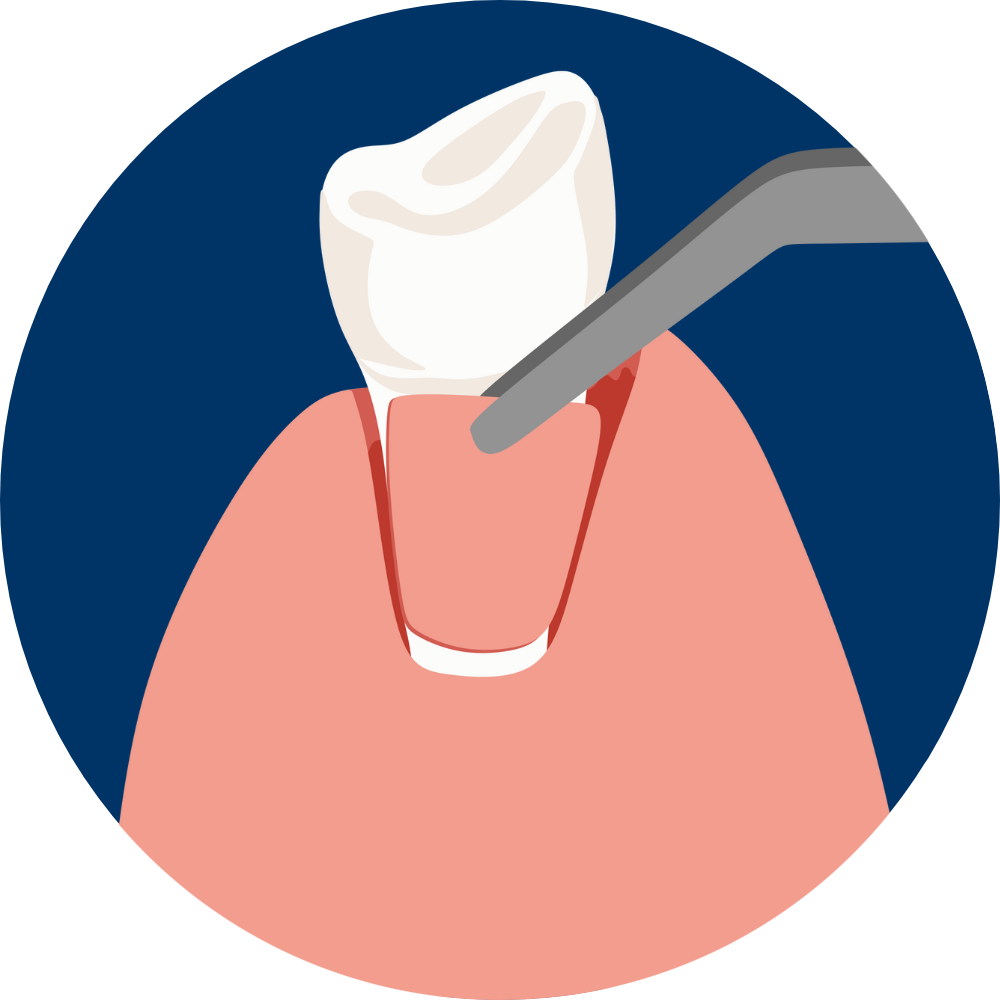
If you’ve lost some gum tissue due to gum disease, this procedure is used to reinforce the soft tissues by extracting some of the tissues from the roof of your mouth.
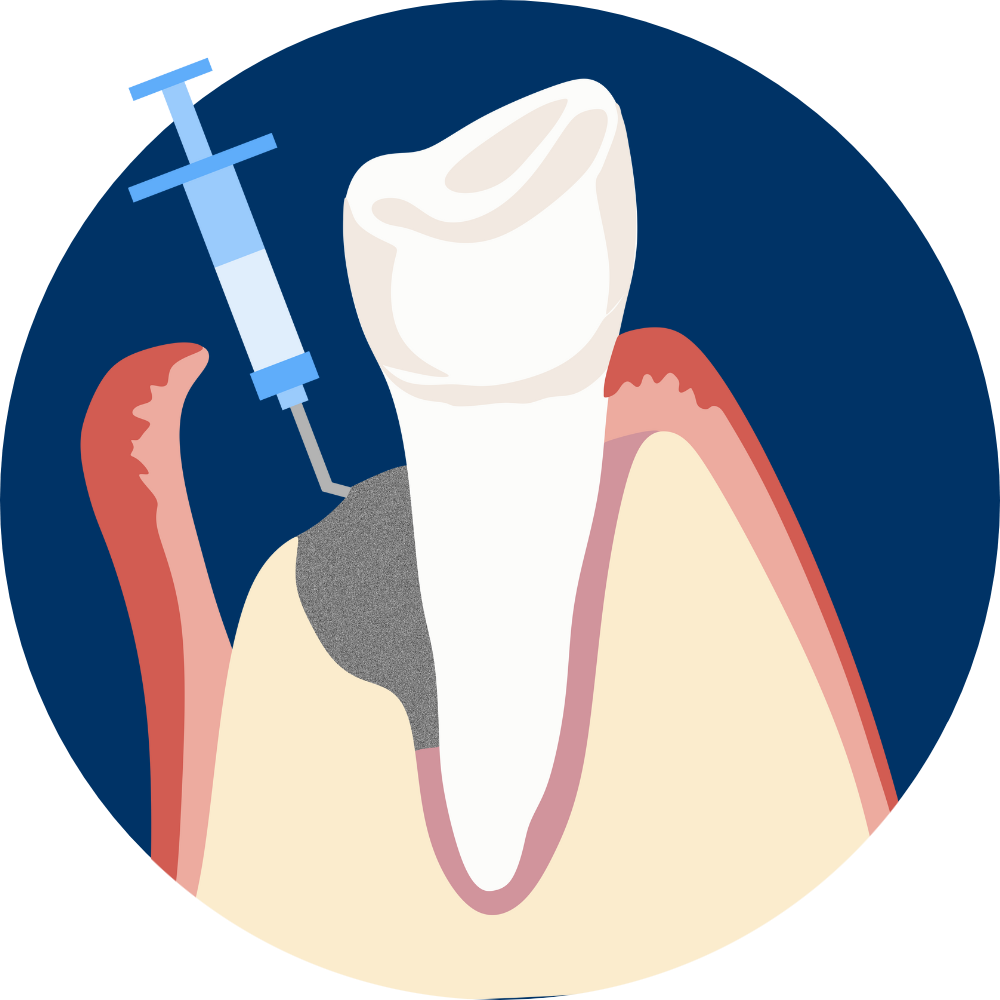
If the periodontitis destroys the bone structure around the teeth, this procedure uses small fragments of your own bone (from different parts of the body) or synthetic bone to supplant the lost bone and support the teeth.
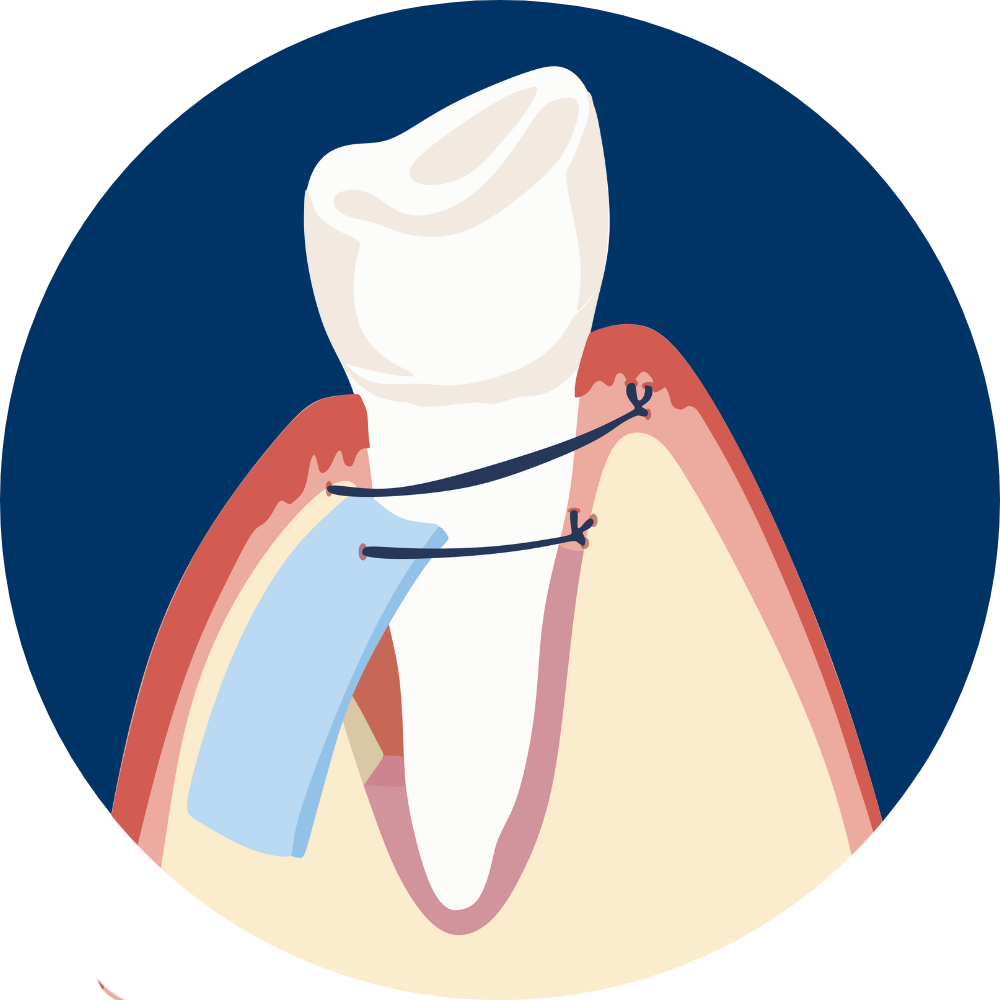
The dentist uses a biocompatible fabric between the bone and teeth to facilitate bone growth and regeneration.
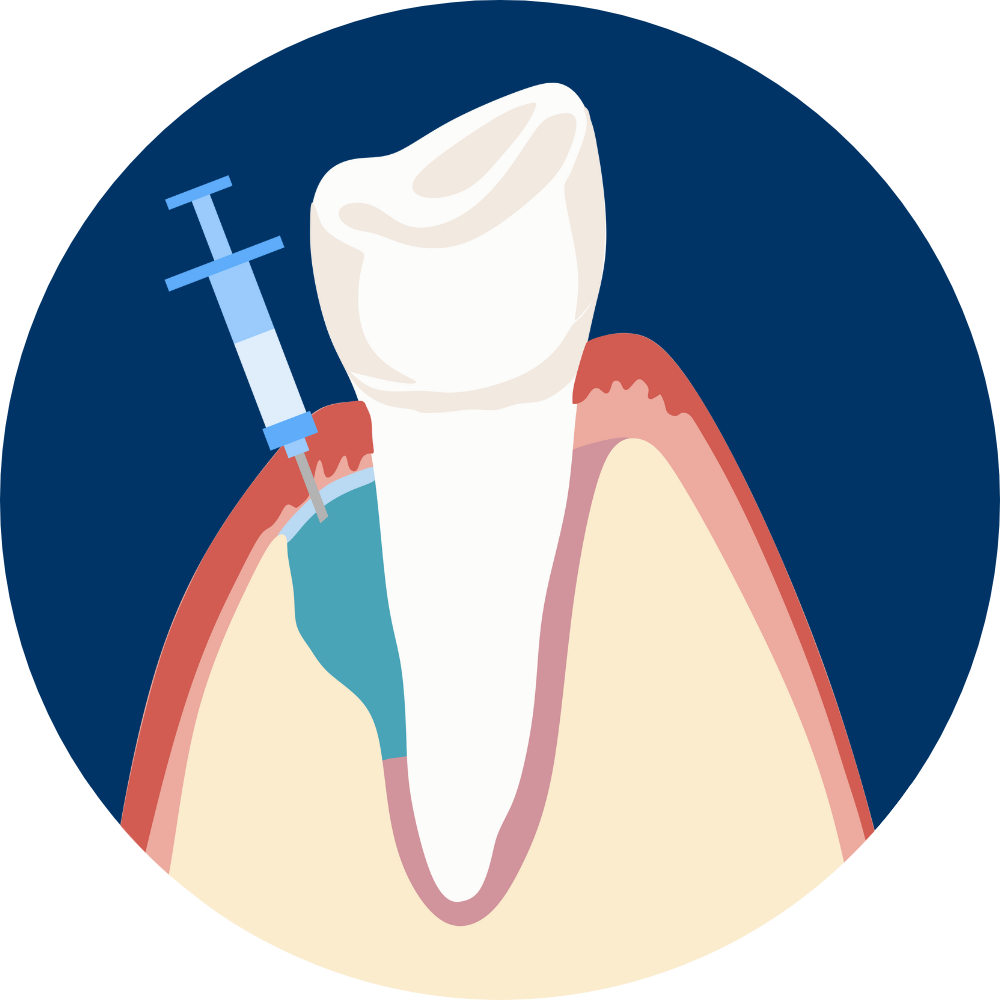
A special type of protein-rich gel is applied to the root of the teeth to facilitate healthy bone growth.
It’s easy to miss the signs of gum disease. Some professionals even call it “the silent killer” because of the way it sneaks up without warning. There are a few signs you can look out for and call us about if you notice them.

Control and Stop Inflammation Before It Harms Your Teeth & Gums.
If your gum diseases haven’t advanced, you can use some home remedies to slow down its progress while you seek treatment. It’s important to note that home remedies can’t cure gum disease, only slow down its progress, provide some temporary relief, or prevent it from happening altogether.
The following are some home remedies you can try to prevent periodontitis:
Effectively and efficiently take care of your gum and teeth with the help of URBN Dental’s Highly-Educated Dental Hygienists
Periodontics: This is the part of dentistry which deals with Periodontium and gums in the mouth. It manages the medical procedures that manage the health of gums and teeth, by looking factors such as biologic width. As a whole, it tends to maintain a healthy mouth.
Prosthodontics: It takes care of teeth that are lost and harmed. Often the dentists who specialize in this field are known as the Architects of a smile. They are exceptional experts that are trained specifically to understand every component visible for a healthier grin. These include the gums, lips and facial highlights. This means that they take every single detail into account.
Pedodontics: On the other hand, a group of pedodontics are specially trained professionals that handle and maintain oral health in kids. The components they deal with include the teeth, the supporting structures of those teeth and their conditions. They make sure that the oral health of the children is not compromised and taken care of properly from a young age. They are distinctly trained due to the differences a child’s mouth has to that of a full grown adult.
Houston | Katy | Montrose | West University Place | Greater Third Ward | Greater East End | North East Houston | Houston Heights | Central Northwest | Fairbanks | Acres Home | East Houston | Southeast Houston | Central Southwest | Fort Bend Houston | Brays Oaks | Meyerland Area | Sharpstown | Alief | Westchase | Memorial | Northwest Houston | Katyland | Whispering Lakes | Pine Lakes | Woodcreek Reserve
Visit us today at URBN Dental as a walk in patient or call us at 281-584-3123 for an appointment at a time of your choosing! Here is to permanent smiles and stronger teeth for all!
No Insurance? No problem.
© Copyright 2025 | Designed & SEO Optimized by The Doctors Marketing
Disclaimer: URBN Dental uses restorative materials such as Admira Fusion® by VOCO, which are free of BPA and Bis-GMA, and are not known to degrade into microplastics under normal oral conditions. While marketed as biocompatible and free of traditional plastic monomers, no dental material is guaranteed to be completely risk-free for all patients. This information is provided for educational purposes and does not constitute medical or regulatory advice.

Discover your perfect smile with a FREE Invisalign assessment.

Receive a complimentary 3D scan ($300 value) when you proceed with implant care.

Speak with our experts about your smile goals from the comfort of your home.
Discuss your smile goals with our experts—choose an in-office visit or a convenient 15-minute phone consult.

Quick, affordable care when you need it most.

Have questions about implants? Get personalized guidance in a brief phone call.